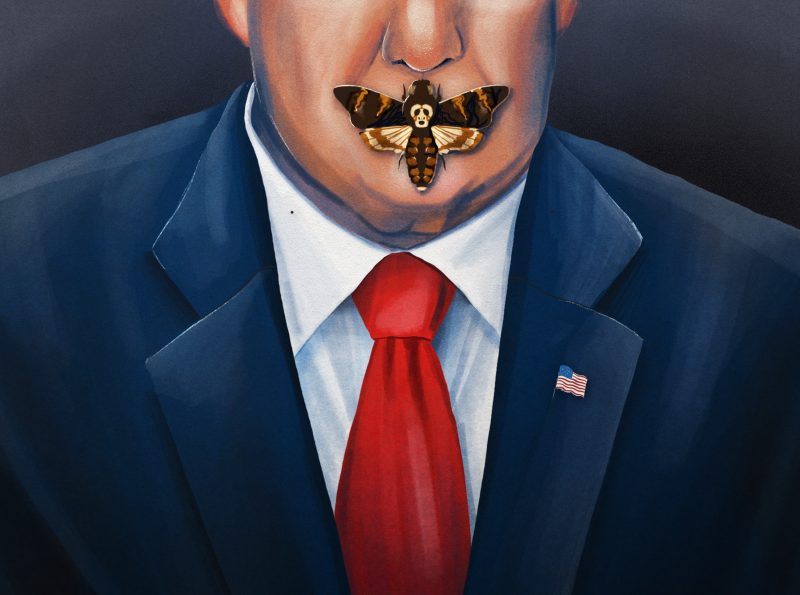In recent times, one may have noticed a peculiar trend in American politics, particularly in the rhetoric of former President Donald Trump – references to the fictional serial killer Hannibal Lecter. This unexpected fixation on a character from the thriller novel Red Dragon by Thomas Harris and its subsequent film adaptations raises questions about the motives behind such references. Understanding the potential reasons behind Trump’s repeated mentions of Hannibal Lecter requires delving into the psychology of both the character and the former president.
Hannibal Lecter, as portrayed in popular culture, is a complex and enigmatic character known for his intelligence, cunning, and ability to manipulate those around him. He is a masterful psychiatrist and a cannibalistic serial killer, making him a figure that embodies a blend of savagery and sophistication. The character’s allure lies in his ability to cross societal norms and expectations, existing as a symbol of the thin line between civilization and primal instincts.
It is within this context that Trump’s fascination with Hannibal Lecter becomes intriguing. On one level, Trump’s references to the character may serve as a form of self-aggrandizement. By aligning himself with a figure as notorious and enigmatic as Lecter, Trump may seek to cultivate an aura of power, intelligence, and control. Drawing parallels between himself and a character known for his manipulation and cunning could be a way for Trump to project an image of strength and mastery over his political enemies.
Furthermore, Trump’s references to Hannibal Lecter could be interpreted as a commentary on the nature of power and influence in politics. Like Lecter, who exerts control over those around him through psychological manipulation, Trump may see himself as a shrewd operator capable of bending others to his will. By invoking the character of Lecter, Trump may be emphasizing his perceived ability to outmaneuver his rivals and maintain a position of dominance in the political arena.
Another possible explanation for Trump’s fixation on Hannibal Lecter is the allure of the anti-hero figure. In popular culture, anti-heroes like Lecter often challenge conventional morality and societal norms, appealing to audiences through their complexity and unpredictability. For Trump, associating himself with a character like Lecter may be a way to position himself as a maverick figure who operates outside the boundaries of traditional political norms. By aligning himself with a character known for his dark and transgressive tendencies, Trump may be signaling a rejection of established conventions and a willingness to push boundaries in pursuit of his goals.
In conclusion, Trump’s repeated references to the fictional serial killer Hannibal Lecter offer a fascinating glimpse into the psyche of a figure who has long thrived on provocation and disruption. By aligning himself with a character known for his intelligence, cunning, and disregard for societal norms, Trump may be seeking to cultivate an image of power, control, and defiance. Whether as a reflection of his self-image, a commentary on the nature of political power, or a nod to the allure of anti-hero figures, Trump’s fascination with Hannibal Lecter underscores the complexities and contradictions at the heart of his political persona.



























